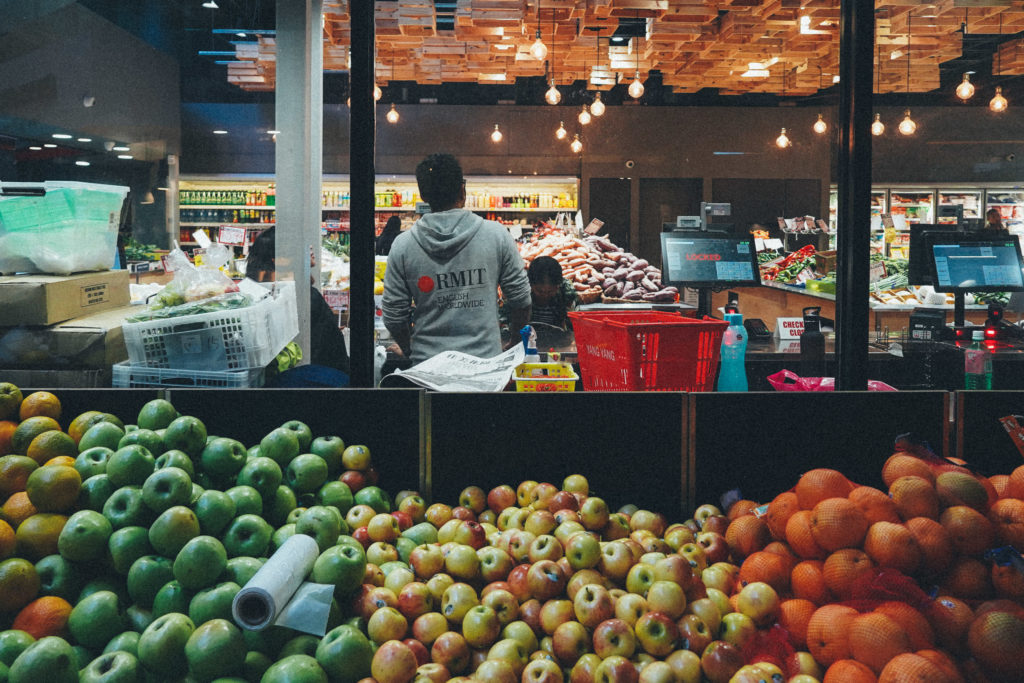COVID-19 has resulted in job losses and reduced working hours throughout Australia, but some international students can now work more than they could before.
In order to help supermarkets stay open to provide essential services during COVID-19 lockdowns, the Australian Government announced changes to the number of hours international students can work in this sector.
International students working at supermarkets or associated distribution facilities in areas impacted by COVID-19 lockdown restrictions can now work for more than 40 hours per two weeks (fortnight) until those restrictions have eased.
Usually, international students are not allowed to work more than 40 hours per fortnight while their course is in session. You are allowed to work unlimited hours during semester breaks and holidays, or if you are a PhD or Masters of Research student.
The temporary change applies to supermarkets that are in lockdown areas in all Australian states and territories. So, as of 21 July 2021, international student supermarket workers in certain areas of New South Wales, the state of Victoria, and the state of South Australia, can work more than 40 hours per fortnight.
Minister for Immigration, Citizenship, Migrant Services and Multicultural Affairs Alex Hawke said in a statement that this temporary change would help supermarkets cope with high customer demand and lack of staff due to self-isolation orders.
“Supermarket workers have been unsung heroes of the pandemic. They stepped up to ensure Australians have access to essential items, and they have kept doing so during the pandemic’s darkest days,” says Minister Hawke.
“This temporary measure ensures that supermarkets can continue to provide their critical services to the community and it provides essential workers themselves with added income flexibility during lockdowns.”
Where else can international students work more than 40 hours per fortnight?
Apart from supermarkets, there are a few other industries in Australia that allow international students to work more than 40 hours per fortnight.
You can work extra hours if you hold a valid student visa and are:
- Employed by an aged care approved provider or Commonwealth-funded aged care service provider with a RACS ID or a NAPS ID, before 8 September 2020.
- Employed by a registered National Disability Insurance Scheme provider before 23 April 2020.
- Enrolled in a healthcare-related course and are supporting the health effort against COVID-19, as directed by health officials.
- Employed in the agriculture sector.
- Employed in the tourism and hospitality sector.
International students who work in Victoria’s agriculture sector are also being offered a bonus payment of $2,430 for completing eight weeks of work on a farm.
Are there any other conditions for working more than 40 hours per fortnight?
International students who are working more than 40 hours per fortnight in the authorised sectors must still be able to balance work and study commitments.
Even though you are working more, you have to:
- Maintain your course enrolment.
- Ensure you have satisfactory course attendance.
- Ensure you are making satisfactory progress in your course.
If you cancel your enrolment and stop attending classes, or fail to make satisfactory course progress, you may be in breach of your student visa conditions.
You are responsible for abiding by your student visa conditions. If you are eligible to work increased hours, keep thorough records of when you started working longer hours and when you stopped.
In case anyone questions your right to work increased hours, consider keeping a record of:
- The government announcement that allows you to work more hours in your sector.
- Your timesheets and payslips.
If you are not sure about your working rights in Australia, pay attention to government announcements, and look at the Fair Work Ombudsman and Department of Home Affairs websites for more information. You can also seek help from a registered migration agent.





